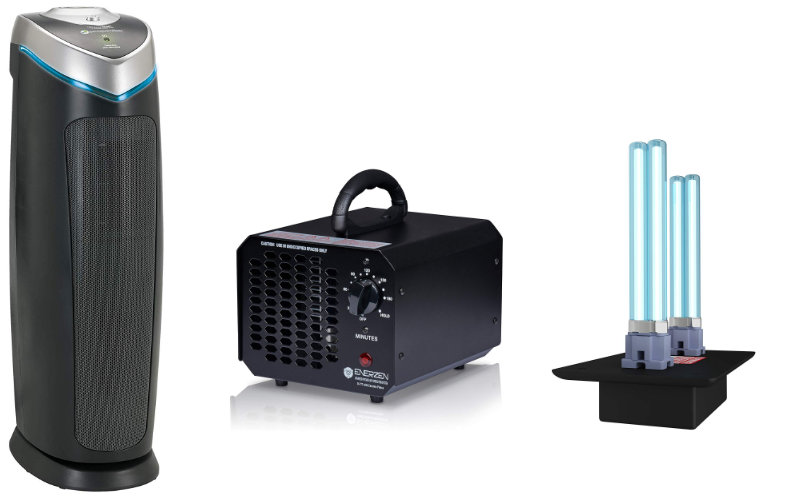Clean Technologies To Fight Coronavirus And Other Biological Risks

Guest article by Bogan
Like many regulars on this board the coronavirus situation has got me concerned, although ever-resolute in my duty to protect my family.
It is worth repeating that the time to prepare is now, when supplies are still somewhat available, not when society at large has panicked and nothing is available.
The risk set we are all confronted with is the viral and biological component of “Nuclear, Biological, Chemical”.
My initial experiences coming to grips with biological risks came back in the days of the anthrax scare. Back then, it seemed the top things you could do were stock up on “Cipro”, bleach, nitrile gloves, surgical face masks, N95/100 respirators and wash hands regularly.
Then came SARS, and a compounding of equipment (tyvek suits, foggers, etc) chemicals and more.
My my my. What a different world we live in now. Now we have coronavirus, and who knows what else. Many of these formerly easily obtainable products are now hard to come by, especially in the “affordable” category.
As a consequence, someone just getting started in their preparations is at a disadvantage to those who have been plodding along one prep at a time, for years.
There is some happy news, however. This is something I’ve come to realize when evaluating my preparations, and assessing the gaps between where I am and where I need to be.
A concern I have had over the years is with all the chemicals, bleach and others, that are considered effective in treating surface and airborne contaminants and viruses.
A side effect of these is that they are…chemicals! What alternatives might be available?
Ozone Generators | UV Light | HEPA Filters
The answers converged on me in connection with other things going on in our lives, that clicked when applying to the coronavirus: the use of ozone generators, UV light, and HEPA filters.
Ozone Generator
Our family uses ozone generators to keep our CPAP machines clean, mold at bay, and our cars clean and odor free (a used car dealer trick I was told years ago, when we spilled some milk on the floorboards of our then-new car).
They supposedly eliminate over 99% of viruses, and other biological contaminants. Lately I’ve been hearing that they are superb in making your hunting clothing odor free, an added benefit.
Yes, they generate ozone which is harmful while the machines are running and for a short time later, however if you simply air the space out (or the piece of equipment like your CPAP machine) after running the machine, the ozone will dissipate.
Are they effective? I think the answer is yes.
I’m no doctor or scientist so recommend searching the question such as “will ozone kill coronavirus?” which might answer it better for you.
One link:
Know Your Ozone: It’s Good, Bad And Bacteria-Blasting
We use an all-purpose ozone generator machine such as this one on Amazon:
Enerzen Commercial Ozone Generator
UV (Ultraviolet) Light
We have a UV light attachment on our central HVAC system. It came with the installation which we had done several years ago.
The air in the ductwork flows past the light which zaps/inactivates all sorts of viruses and biological contaminants. That said, a person can buy “bolt on” kits for their HVAC system, such as:
Whole House Uv uvc Light in Duct for HVAC Ac (Air Conditioning) Duct:
REKO Lighting R2000 Air Purifier
(view on amzn)
Skeptical? Search the internet for “will UV kill coronavirus”?
UV light can also be used to treat water systems:
Bluonics Ultraviolet Light UV Water Sterilizer Purification for Whole House
(view on amzn)
HEPA Filters
HEPA filters have been used since the 1940s starting in military biomedical applications to prevent the spread of viral organisms and airborne bacteria. We have used one on and off for perhaps 20 years. However, much better ones seem available now, such as:
Germ Guardian True HEPA Filter Air Purifier
(Ken adds: I have this one)
Skeptical? At the risk of sounding like a broken record, search the internet for “will HEPA kill coronavirus”!
BOTTOM LINE
– all three of these ‘clean” technologies seem to be readily available, and worth looking into.
Do you have other ideas or suggestions on “clean technologies” to fight viruses such as the coronavirus or other bad-for-you forms of biology?
Continue reading: How To Survive Pandemic
